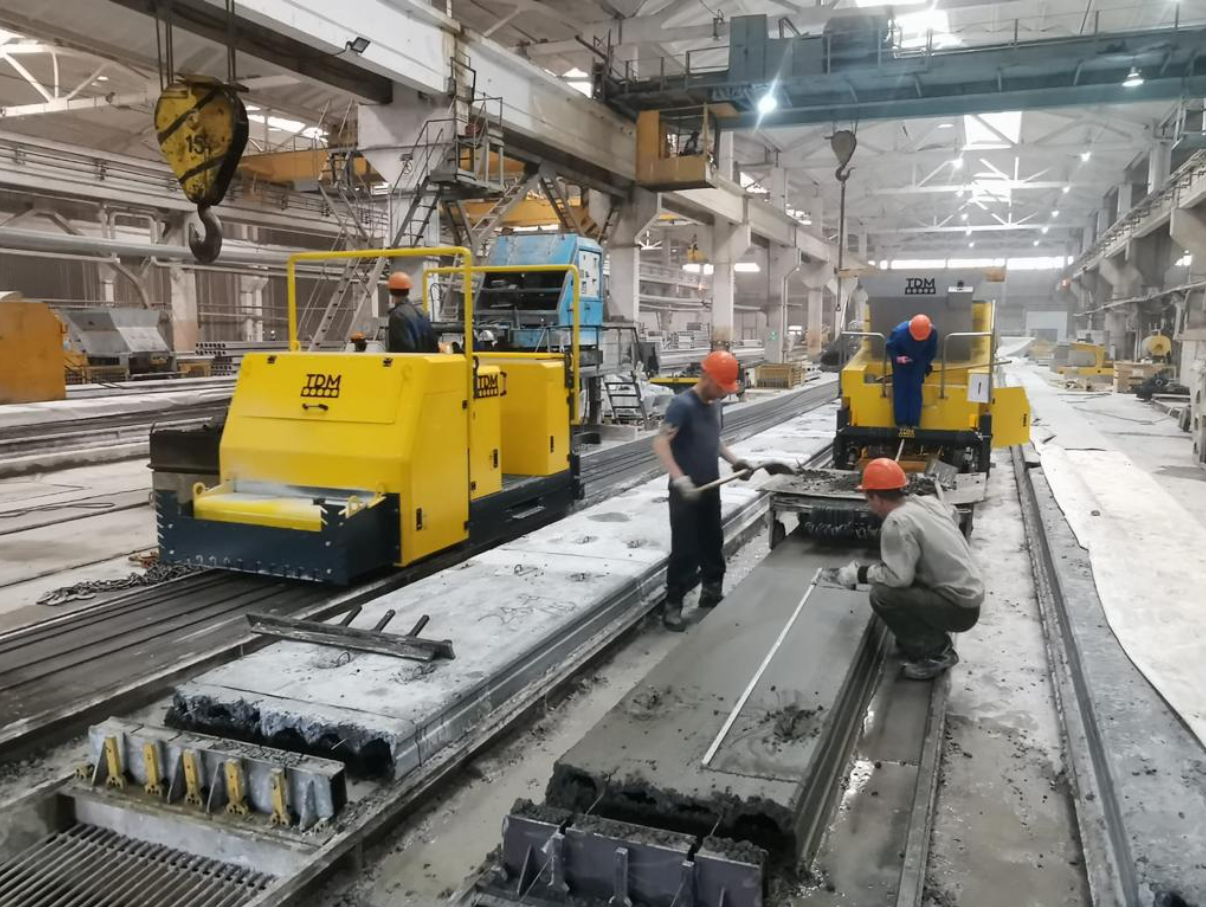In today's construction industry, efficiency and quality are of particular importance. The application of the TDM extruder to the production of hollow core slabs represents a significant technological breakthrough in the precast concrete industry. This article examines the features of hollow core slab production using TDM extruders, highlighting their unique characteristics, operating principles, and the benefits they bring to the construction industry.
Understanding hollow core slabs and their importance
Hollow core slabs are a type of precast concrete products commonly used as slabs between floors in buildings. They are characterized by the presence of voids that reduce the weight of the product, improving thermal and acoustic properties, as well as reducing material consumption and lowering the overall cost of construction.

TDM extruders for the production of hollow core slabs
- Technology overview
TDM extruders are designed to produce slabs with different cross-sectional heights from 120 to 600 mm. Equipped with state-of-the-art technology and a touch screen interface, they allow for efficient process control to ensure high quality finished products.
- Working principle
The principle of operation of the extruder is that the concrete mixture is forced under high pressure through the compaction group by means of screws. This ensures its compaction and formation of a slab of the required configuration on the molding track.
- Features and advantages
1. Modularity: The system is built on the modular principle, which makes it easy to customize the extruder for different applications.
2. Automation: The intensity of compaction is automatically adjusted according to the properties of the concrete used, which guarantees the stability and quality of the product.
3. Versatility: TDM extruders are capable of producing different hollow core slabs.
Impact on the construction industry
The use of TDM extruders for the production of hollow core slabs significantly improves the efficiency of construction processes, reduces costs and contributes to environmental improvement by reducing waste and material consumption. Continuing to analyze the impact of TDM extruders on the construction industry, it is worth noting that this technology provides not only improved quality and reduced costs, but also increased safety in production. Modern extruders are equipped with automatic control systems that minimize the risk of human error and provide tighter control over the production process. It is also important to note that due to the highly automated process, extruders are able to maintain high quality standards in mass production, making them ideal for large construction projects.
In addition, TDM extruders have built-in flexibility in parameter settings, allowing the machine to be customized to meet specific customer requirements. For example, the ability to adjust molding speed and product height makes these machines versatile and able to meet the specific needs of any construction project. This feature greatly simplifies the process of integrating new equipment into existing production lines, increasing their efficiency and productivity.

